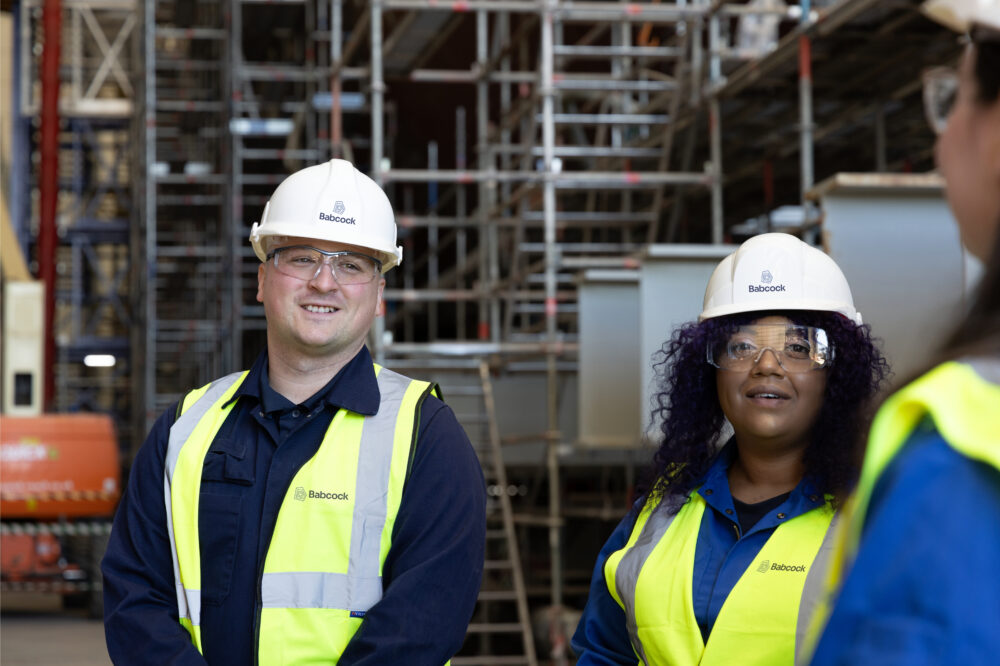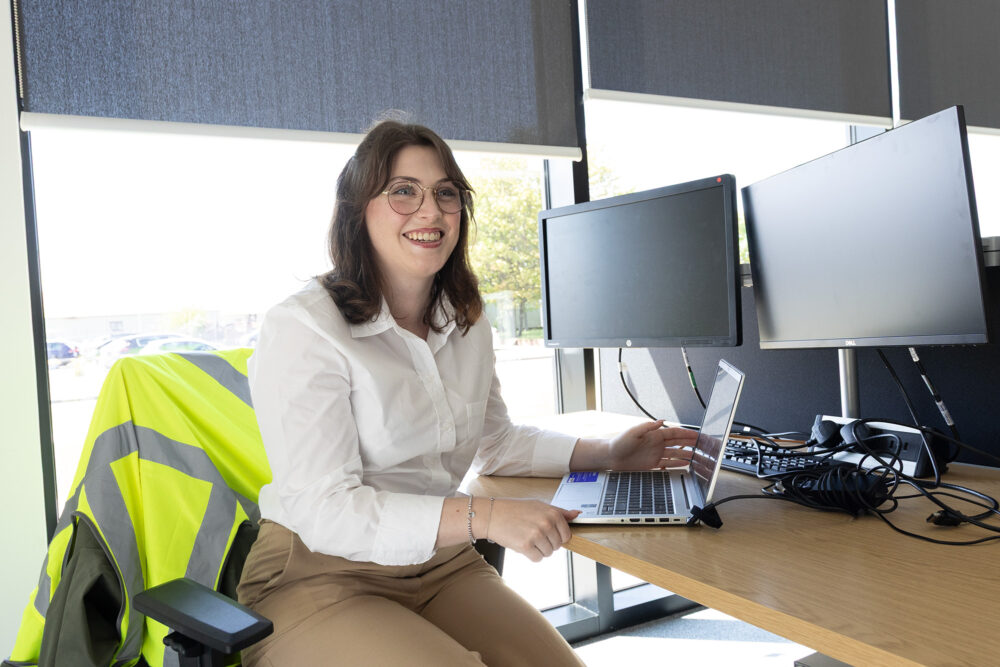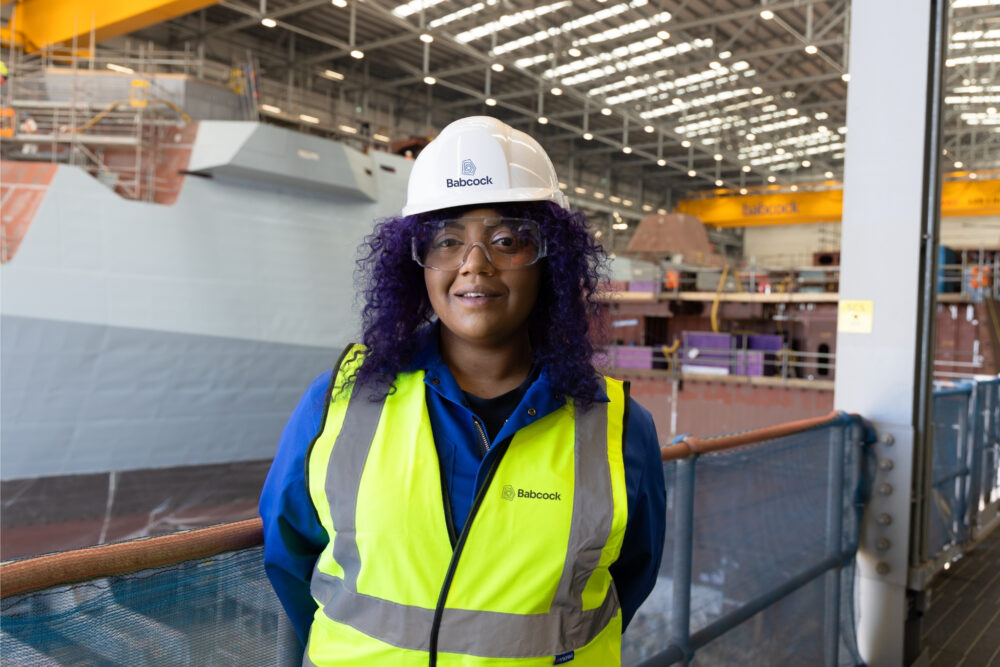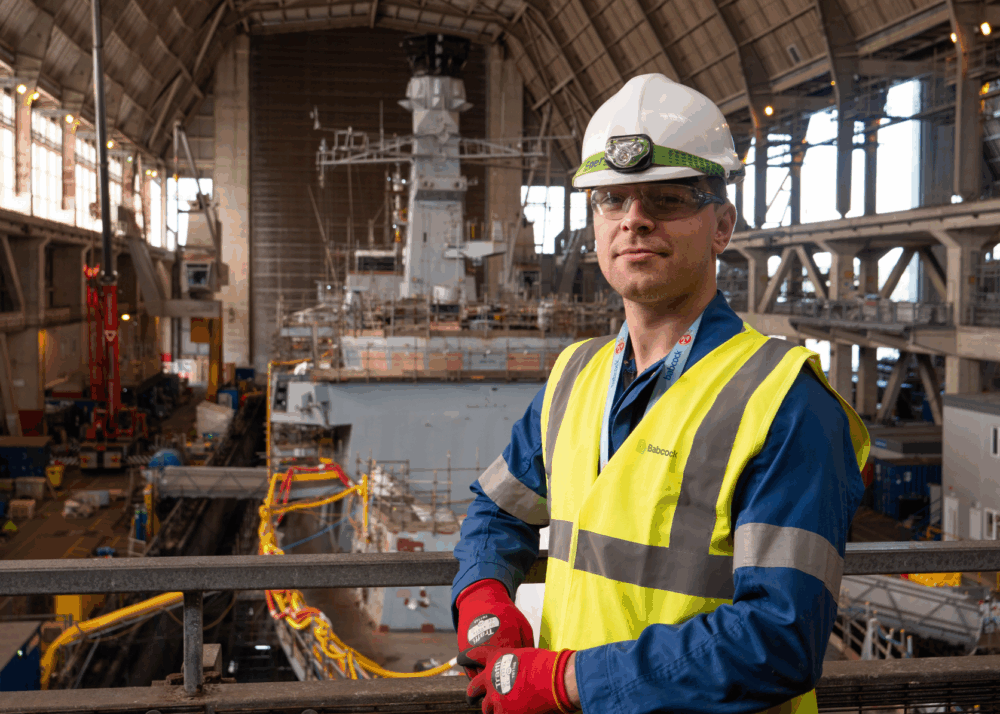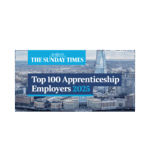What will you do on the programme?
Our Materials Engineering Graduate Programme offers you the chance to put a genuine passion for materials science, engineering and metallurgy into action.
You’ll support some of the UK’s most important defence programmes, playing a role in maintaining the safety, capability and longevity of both submarine and surface ship platforms. From the earliest design stages through to build, operation and eventual decommissioning, you’ll be part of teams that solve complex engineering problems and shape the future of naval technology.
Your work could take you into additive manufacturing, creating innovative materials designs, refining mechanised welding processes, or contributing to specialist research in inspection, testing and joining techniques. Each project will challenge you to apply your technical knowledge in new ways, working with experts across different disciplines to deliver solutions that meet the needs of the Royal Navy and the Ministry of Defence.
Along the way, you’ll gain exposure to some of the most advanced engineering environments in the UK. You’ll see how critical materials decisions influence performance, safety and sustainability, and you’ll have the satisfaction of knowing your work supports the security of the nation.
Can’t find what you're looking for?
Applications are closed. Register your interest and we’ll let you know as soon as applications open.
How is the programme structured?
Over two years, you’ll take on a series of placements that give you a complete picture of materials engineering in a marine defence context. You’ll rotate through areas such as Metallurgy and Materials, Welding Design and Non-Destructive Testing, each offering new experiences and opportunities to learn.
You’ll also have the chance to collaborate with other sectors and sites, giving you a broader view of our end-to-end operations and how different teams work together to deliver complex programmes. This variety will help you discover where your strengths and interests lie, while building a wide network of professional connections.
How do we develop and support you?
From day one, you’ll receive structured support, personalised training, and dedicated mentorship to help you excel throughout your programme and beyond.
You’ll join our Graduate Development Programme, featuring expert-led masterclasses on communication, personal branding, resilience, and wellbeing.
To support your journey toward Chartered or Incorporated Engineer status, we offer full guidance and cover all associated fees.
What’s waiting for you after the programme?
Once you complete the programme, you’ll move into a permanent role within our Engineering Function, where you can continue applying and expanding the skills you’ve developed. You’ll also have the opportunity to build on your progress toward professional registration, a recognised benchmark of engineering competence, which can support your journey into more advanced roles, such as Senior Engineer.
As a global organisation, Babcock provides countless opportunities to enhance your skills and advance your career. To support your growth, we’ve introduced the Babcock Role Framework, which outlines roles, career pathways, and development opportunities. With every job mapped to these frameworks, you’ll have a transparent view of the steps needed to reach Senior Engineer and beyond.
What rewards and benefits will you get?
We want you to feel supported, valued and excited about what’s ahead. That’s why we offer a comprehensive package designed to support your development, your wellbeing and your life outside of work too.
What do you need to apply?
- A BEng or BSc (Hons) degree in Materials Engineering or Materials Science is preferred.
- Other relevant engineering degrees may also be considered, including Mechanical Engineering, Aerospace Engineering and Naval Architecture, particularly if supported by postgraduate study in a materials discipline or work experience focused on materials, welding, joining, testing or corrosion.
- Industrial experience or placements are desirable, along with a clear interest in a career in materials, marine engineering or defence, and an understanding of its challenges.
- Experience of technical or engineering standards and regulations is beneficial, including those relating to nuclear, health, safety or the environment.
- Many of our graduate programmes are subject to Security Clearance and Trade Control restrictions which mean that your place of birth, nationality, citizenship, or residency you hold or have held may impact which programmes you are eligible for. For this programme, you must be able to achieve Baseline Personnel Security Standard (BPSS), Security Check (SC) and Naval Nuclear Propulsion Information (NNPI) clearance. Further details are available at United Kingdom Security Vetting: clearance levels – GOV.UK (www.gov.uk).
Where will you be based?
Places on our Materials Engineering Graduate Programme for Autumn 2026 are available in our Marine/Nuclear sector in Plymouth. We ask our graduates to be flexible as there is the potential to undertake placements in other locations during their programme.
Based at Devonport in Plymouth, the largest naval base in Western Europe, you’ll be part of the team that delivers critical support to the Royal Navy’s surface ships and submarines. Here, you could work on materials analysis for life-extension projects, develop welding and joining solutions for the overhaul of nuclear-powered submarines, or contribute to inspection and testing programmes that support the integration of advanced systems onboard.
Current openings in
Materials Engineering
Application guidance
Applications are reviewed in the order they are received, and if there’s a high level of interest in this programme, we may close applications earlier than advertised. To give yourself the best chance of being considered, we strongly recommend submitting your application and completing any required online assessments as soon as possible.
Similar Programmes
Check out some of our other, related programmes. Whatever graduate programme you choose, you’ll have the chance to make a real impact.

